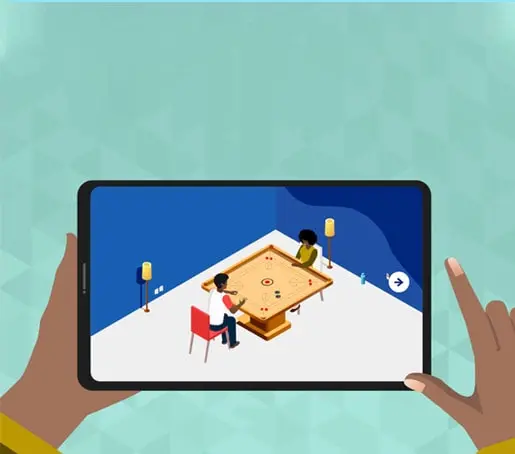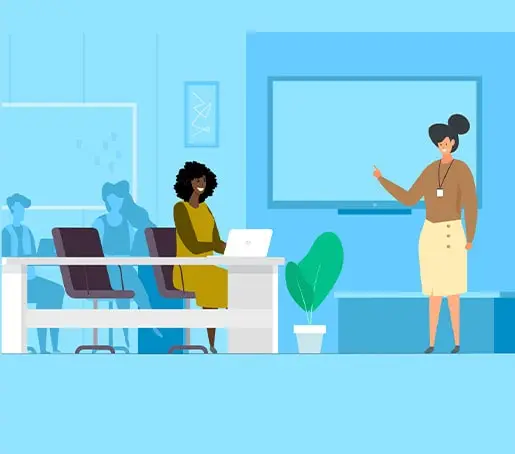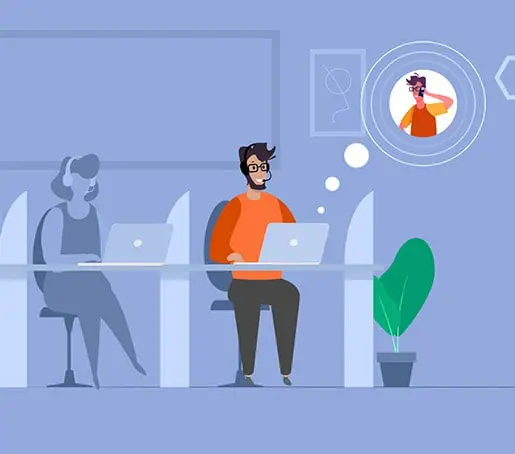The customer service representative role calls for the ability to troubleshoot issues and provide solutions in a time-efficient manner for customers. Employers typically mention problem-solving as part of the job description and tend to gauge candidates’ competencies during the interview process.
On a daily basis, customer service representatives (CSRs) need to engage in active listening and show empathy, identify complex problems, assess needs and fixtures, probe and troubleshoot issues, and follow up on the solutions provided. To stay on top of each of these tasks in the problem-solving cycle, CSRs must be able to adapt their problem-solving skills to suit the unpredictable issues that customers might raise. When we think about necessary customer service skills, including keen observation, attention to detail, critical/analytical thinking, teamwork, and perseverance, all of these are geared to sharpen intuition for problem-solving.
Employers analyse a candidate’s aptitude for problem-solving, not only during the interview itself but also through psychometry tests that are a part of screening assessments.
This article will equip you with the strategies and techniques to convince your interviewer of your problem-solving skills in customer service.
Mention instances of the best resolutions from your previous experiences
Employers want to know how you respond to problems and critical situations. By providing specific examples of how you handled and resolved such incidents, you proactively showcase your capabilities to the interviewer. This approach not only highlights your problem-solving skills but also reflects your ability to provide effective solutions and deliver strong customer service. After all, intuition plays a significant role, making it another valuable skill to demonstrate to your interviewer. Choose previous job stories relevant to the open role and adopt a storytelling narrative. This way, your interviewer will be engaged. Even if your experience doesn’t match the current role, cite examples where your solution positively affected results or the brand. Problems may vary across organisations, but approaches to solving them are universally relevant.
Moreover, quantify your results whenever possible. Instead of saying, "I improved customer satisfaction," say, "I implemented a new customer feedback system that resulted in a 15% increase in positive customer reviews within three months." These quantifiable results demonstrate the real-world impact of your customer service and problem-solving skills.
Use language that indicates you are solution-focused.
The first rule of problem-solving is to focus less on the problem itself. Since customer service problem-solving needs a fluid approach to match various customer scenarios, interviewers would want to know how you can adapt. Approach to problem-solving is never evaluated in isolation from a positive attitude because finding resolutions requires resilience—you may have to keep looking for alternatives until a solution fits. Interviewers can assess your attitude by your positive speech and attentive body language.

Practice your responses before you appear for the interview.
”Practice makes perfect” is a popular expression for good reason. For interviewers, the job description is like a checklist. They ask probing questions to validate that you fit all the mentioned requirements. So, you can practice responses that support each requirement for the role, either through examples or through insight that you have gathered. Practising your answers also helps in structuring your thoughts. As a result, you will appear collected and confident—also qualities that interviewers seek in candidates. For customer service representatives, this mind frame is a necessity on the job, since the brand’s voice when interacting with customers should reflect confidence.
To improve your chances, check out these important call centre interview questions and answers, which will help you practice your responses to common questions

Describe a Situation When You Faced a Difficult Problem at Work?
It’s common for interviewers to ask you about a time you encountered a challenging problem at work. When answering, be sure to choose an example where you solved the problem, demonstrating your problem-solving skills for customer service or in other work situations. When describing your situation, explain the context, the obstacles you faced, and the steps you took to resolve the problem. By focusing on the solution, you show that you don’t shy away from challenges and are equipped with the right skills to handle them.
For example, if you were working in a call centre and a customer was dissatisfied with a product, you might describe how you actively listened to their concerns, identified the root cause of their frustration, and offered a resolution. You can elaborate on how you used customer service problem-solving techniques to address the issue effectively.
Describe a Time You Made a Mistake at Work and Fixed It?
Everyone makes mistakes. What's important is how you handle them. This question assesses your ability to take responsibility for your actions, learn from your mistakes, and take steps to rectify the situation. Be honest and transparent about your mistake, but focus on the steps you took to fix it and the lessons you learned. This demonstrates your accountability and your commitment to continuous improvement.
For instance, if you made an error in processing a customer’s order, you could explain how you quickly identified the mistake, informed the customer, and worked to rectify the situation. By showing that you learn from mistakes and actively find ways to improve, you underline your problem-solving skills in customer service. It can help build trust with both clients and your team.
How Did You Overcome Challenges While Working with a Team?
Teamwork is essential in many job roles, especially in customer service environments. Problem-solving in customer service requires collaborating with others to resolve issues. Interviewers may ask how you handle conflicts or challenges when working as a team. In your response, highlight a specific example where you worked through a conflict or difficulty with colleagues to reach a positive outcome. Whether it was a disagreement about how to approach a customer complaint or coordinating with other departments to solve a problem, emphasise your ability to collaborate and find solutions that benefit everyone involved.
Highlight Your Critical Thinking Skills
Critical thinking is an important aspect of problem-solving. It allows you to analyse complex issues and develop effective solutions. In interviews, demonstrate your ability to assess situations from multiple angles, identify key factors contributing to the problem, and develop logical strategies for addressing it. Here’s an example of problem-solving in customer service. If you encountered a recurring issue with product defects, you could explain how you analysed customer feedback, collaborated with the quality control team, and proposed a solution that reduced defects and improved customer satisfaction.

Demonstrate Your Ability to Stay Calm Under Pressure
Customer service roles in call centres are high-pressure situations where quick decisions are necessary. Interviewers want to know that you can stay calm, think clearly, and make effective decisions even in stressful circumstances. This is one of the vital customer service problem-solving techniques when you often have to deal with demanding customers in high-pressure situations. Describe an example where you handled a tense situation with composure. For instance, you might recall when a customer was upset, demanding an immediate resolution. By staying calm and listening to their concerns, you were able to defuse the situation and resolve the issue to their satisfaction.
To better prepare for stress-related situations, refer to job interview tips on managing nerves and staying calm during high-pressure questions.

Exhibit Your Learning Mindset
A natural problem-solver is always eager to learn and grow. When you exhibit a learning mindset, you show that you continuously seek ways to improve your skills and knowledge to handle problems more effectively in the future. In interviews, discuss how you seek feedback, engage in professional development opportunities, or adapt your approach based on past experiences. For example, you may have taken a course on problem-solving strategies in customer service and implemented them in your work.
Conclusion
You can demonstrate to your interviewer that you are well-equipped to handle challenges and provide valuable solutions by showcasing your problem-solving skills in customer service. You can take your interview through situational call centre problem-solving examples to demonstrate you are an attractive candidate for any role in customer service.
For those interested in customer service positions in Jamaica, HGS Jamaica offers great opportunities to apply and further develop your problem-solving skills in customer service. If you are ready to take the next step in your career, consider exploring customer service jobs in Jamaica with HGS.
Frequently Asked Questions
How to explain problem-solving as a strength?
To explain problem-solving as a strength, provide specific examples from your work experience where you successfully resolved challenges. Highlight the approach you took and the positive results that followed.
What are the five steps for better problem-solving?
The five steps for better problem-solving are:
- Define the problem.
- Gather information
- Brainstorm potential solutions.
- Evaluate and choose a solution.
- Implement the solution and assess the results.
How to train problem-solving skills?
You can train problem-solving skills by practising critical thinking, analysing real-life problems, and learning from mistakes. Engaging in exercises like case studies or problem-solving workshops can help as well.
How to solve problems with customer service?
To solve problems with customer service, listen carefully to customer complaints, empathise with their situation, identify the root cause, and offer a timely solution.
 Jamaica
Jamaica Canada
Canada Colombia
Colombia India
India Philippines
Philippines UK
UK US
US SA
SA



